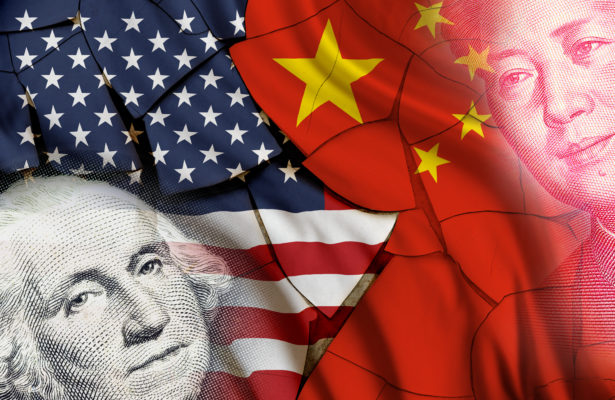Dear Clients and Friends,
Our report found here contains an update on m&a deals, values, and trends in the dozen+ segments of the information technology industry that we follow, and sometimes lead.
Please click here for our April Market Update.
In 2017, the US exported $2.3 trillion in goods and services while it imported $2.9 trillion, leaving a trade deficit of roughly $566 billion – 12% higher than last year. That’s not good. $375 billion of that deficit is with China – up 8% over 2016. Also not good. Some see deficits as a sign of unfair trade practices including unfair import restrictions, currency manipulation, wage suppression, government subsidies, and infringement of intellectual property (“IP”) rights. And it is often true. But it’s not the whole truth and it’s not all bad news.
Most of our clients sell IP-based services internationally and about half engage in cross-border m&a. Most of them are doing pretty well. They know that unfair trade practices are real. They also know that imbalances don’t always signal unfair trade practices. The US runs trade surpluses with more than a dozen countries, including Argentina, Australia, Belgium, Brazil, and the Netherlands. Further, according to the US Census Bureau, in 2017, the U.S. had a $248 billion net trade surplus in services globally – driven largely by financial services, tourism, education, and IP. That’s our world. And it’s stronger across most borders than some would have us believe.
We applaud a strong US stance on trade. Presidents Nixon and Reagan both threatened Japan and Germany with tariffs to get them to rescind trade-distorting policies. We should confront China – and others. But we should not forget that contributors to trade deficits also include a strong US dollar (which makes some goods and services more expensive overseas – but is also a sign of a growing US economy in which consumers have more income to spend). Trade deficits are also exacerbated by deficit government spending as well as by monetary and fiscal policies that stimulate the economy.
Free and fair cross-border trade has been key to the success of our industry. We want our leaders to confront those who engage in unfair trade practices – and also to ensure that we don’t engage in them ourselves. A trade war won’t help. In 2017, China had a global trade deficit in services of about $132 billion – 26.6 percent above 2016. Some of that accrued to the benefit of our industry. Trade deficits are not always someone else’s fault…
As you will see in our April Market Update found here, m&a activity in the dozen sectors that we follow and sometimes lead is strong. A few of the more interesting recent transactions over the past month include:
- Salesforce (NYSE:CRM) agreed to acquire MuleSoft for $6.1bn, valuing the company at an implied 22.3x LTM revenue,
- CME Group (NASDAQ:CME) agreed to acquire NEX Group for £3.9bn (~$5.4bn),
- GTCR (Chicago, IL) and Sycamore Partners (New York, NY) agreed to acquire CommerceHub for $1.1bn, valuing the company at an implied 9.8x LTM revenue and 34.1x LTM EBITDA,
- S&P Global (NYSE:SPGI) agreed to acquire Kensho Technologies for $550mm, implying an enterprise value of $564mm and valuing the company at an implied 28.2x LTM revenue,
- Atom Bank (Durham, United Kingdom) raised $207mm in an equity round of funding led by existing investors BBVA and Toscafund Asset Management,
BBVA now owns roughly 39% of Atom Bank,
Oscar Insurance (New York, NY) raised $165mm in a growth funding round, valuing the company at $3.2bn.
Please click here to read more in our April General Market Update Newsletter.
Sincerely,


